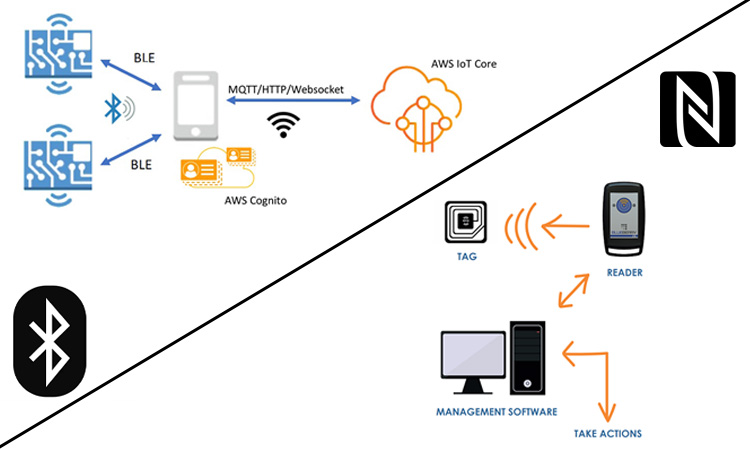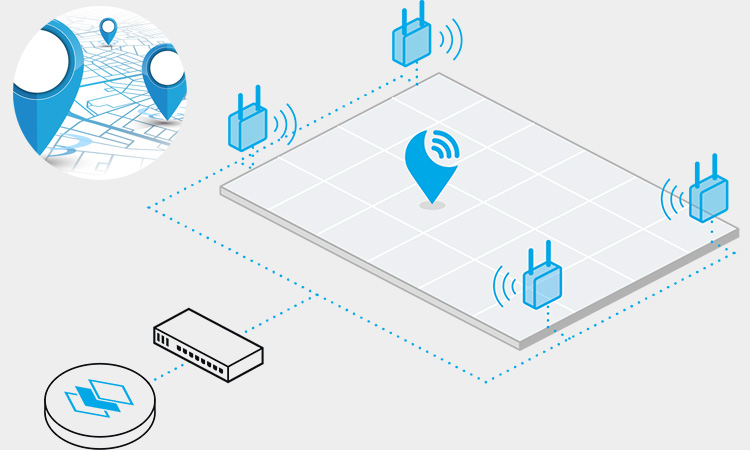In today’s digital age, the idea of a cashless society is gaining traction. In the U.S., cash usage has been declining for years, with more people opting for digital payment methods. While increased convenience and security are some advantages, there are concerns about exclusion and privacy. Here, we’ll explore the pros and cons of a cashless society, and how it may impact our economy and daily lives.
Cashless Society Definition

A cashless society is where physical cash is no longer the primary means of conducting transactions. Instead, digital payment methods such as credit cards, mobile payments, and online transfers are used to complete financial transactions. This trend is becoming increasingly popular due to technological advancements, which have made digital payments more accessible and convenient.
The concept of a cashless society is not new. Countries such as Sweden, Denmark, and South Korea have led the way in this area, with over 50% of their population using digital payment methods.
The State of Cash in the U.S.
In the U.S., cash usage has been declining for years. According to a recent Federal Reserve study, cash usage decreased by 50% between 2015 and 2020. The study also found that cash was used for only 19% of all transactions in 2020, down from 26% in 2017.
This trend is largely due to the increasing popularity of digital payment methods, such as debit cards, credit cards, and mobile payments. These electronic payment systems have become more convenient and accessible. Many businesses have started to prioritize digital transactions over cash.
Forbes says digital payments are good for business transactions:
For business transactions too, there are several benefits of going cashless.
Cash management is eliminated resulting in a lower risk of theft and reducing the cost of security and storage.
Digital payments are often quicker transactions, thereby resulting in shorter queues and enhancing the customer’s in-shop experience. Customer convenience is thus driving sales.
A clear trail is available for easy accounting, helping simplify operations and tax compliance.
— From forbes Contributor Piyush Khaitan and Editor Armaan Joshi
However, while cash usage is declining, it remains an important form of payment for certain groups. The Federal Reserve study found that cash is still the most commonly used form of payment for transactions under $10 and is preferred by many low-income households and older Americans.
Another factor contributing to the decline in cash usage is the COVID-19 pandemic. Many businesses and consumers have used contactless payment methods to reduce the virus’s transmission risk.
Despite the declining usage of cash, it is important to note that cash is still legal tender and must be accepted as payment by businesses. However, some businesses have begun to refuse cash due to concerns about hygiene and safety.
Cashless Society Pros and Cons
As with any major societal shift, a cashless society has pros and cons.
Cashless society advantages and disadvantages:
| Advantages of a Cashless Society | Disadvantages of a Cashless Society |
|---|---|
| Efficient and Convenient | Cybersecurity Risks |
| Financial Transparency | Surveillance and Monitoring of Financial Transactions |
| Financial Inclusion | Exacerbate Existing Inequalities and lead to Financial Exclusion |
| Security | Subject to Technical Glitches and Outages |
| Environmental Benefits | Vulnerable to Power Outages and other Disasters |
Cashless Society Advantages
A cashless society offers several advantages.
- First, it is more efficient and convenient. Electronic payments can be processed instantly and without physical cash handling. This reduces the time and effort required to manage cash and eliminates the risk of theft or loss.
- Second, electronic payments offer greater financial transparency. This makes it easier to track and monitor financial transactions. This can help to reduce money laundering, tax evasion, and other forms of financial crime.
- Third, non-cash transactions can also promote financial inclusion. It eliminates needing a physical bank account or credit history to access financial services. This can particularly benefit low-income individuals or those without access to traditional banking services.
- Fourth, electronic payments can also be more secure than cash. They are less vulnerable to theft and fraud. This can reduce the risk of financial loss for individuals and businesses alike.
- Fifth, non-cash transactions can also have environmental benefits. It reduces the need for paper currency and the associated environmental impacts of cash production and disposal.
Cashless Society Disadvantage
While a cashless society has many advantages, there are also some potential disadvantages.
- First, electronic transactions can be vulnerable to cyber-attacks and digital fraud. This can compromise personal and financial data.
- Second, virtual transactions could also lead to increased surveillance and monitoring of financial transactions, potentially violating personal privacy and civil liberties.
- Third, virtual transactions could exclude those who do not have access to electronic payment methods or those uncomfortable with technology. This could exacerbate existing inequalities and lead to financial exclusion.
- Fourth, electronic payments can also be subject to technical glitches and outages. This can disrupt transactions and cause financial losses.
- Fifth, virtual transactions could also be vulnerable to power outages and other disasters. It could disrupt electronic payment systems, leading to potential economic chaos.
What Does a Cashless Society Look Like?
A cashless society would be one in which all financial transactions are conducted electronically without physical currency. This means that paper money and coins would no longer be used as a medium of exchange.
Instead, transactions would be conducted using electronic payment methods such as credit and debit cards, mobile payments, and digital wallets. This would require a significant increase in the use of technology and infrastructure to support electronic transactions.
Related Read: How to Solve Credit Card Processing Outage
Cashless Societies Examples
While no country has yet achieved a completely cashless society, several examples of countries have made significant progress in this direction.
For example:
- Cashless businesses have become increasingly common in the United States. Some cities have passed laws banning cashless operations in an effort to promote financial inclusion.
- Sweden has one of the highest rates of cashless transactions in the world. More than 80% of their transactions are conducted electronically. This is partly due to the widespread use of mobile payments and the availability of electronic payment methods in many public places.
- Denmark is another country that has made significant strides towards payment digitization. Many businesses and public institutions no longer accept cash payments. Electronic payments are the norm in Denmark, with the vast majority of transactions conducted electronically.
- Mobile payments are rapidly replacing cash as the preferred payment method in China. More than 60% of people now use mobile payment applications such as Alipay and WeChat Pay.
- India has also made significant progress in achieving payment digitization. The government’s demonetization efforts in 2016 led to a surge in electronic payments and a decline in cash usage.
What about Cash Production?
As the use of physical currency declines, the need for cash production and circulation is also decreasing. This has significant implications for the production and management of physical currency.
For example, in the United States, the Federal Reserve estimates that the total value of U.S. currency in circulation as of 2021 was approximately $2.1 trillion. While this may seem like a large amount, it is only a small fraction of the total value of money in the U.S. economy, primarily represented by electronic transactions.
Despite the decreasing need for physical currency, cash production remains an important function of central banks worldwide. This includes the printing of banknotes and the minting of coins, and the distribution and management of cash supplies.
As electronic payments become more prevalent, central banks are increasingly exploring ways to reduce the cost and complexity of cash production and distribution. This may include using new materials and technologies to make banknotes and coins more durable and secure. And developing new methods for distributing and managing cash supplies.
Cashless Business Trend
The trend toward cashless business is growing, particularly in the retail and food service industries.
Businesses are increasingly adopting electronic payment methods. Such as credit and debit cards, mobile payments, and online payment platforms. Consumer preferences partly drive this trend for faster, more convenient payment options.
The cashless business also has the potential to reduce costs and improve efficiency for businesses. Electronic payment methods can streamline the payment process and reduce the need for cash handling and security measures.
However, there are concerns that cashless businesses may exclude individuals who do not have access to electronic payment methods. It is particularly those in low-income or marginalized communities.
Some cities and states in the U.S. have taken steps to address these concerns, with legislation being introduced to require businesses to accept cash payments. However, no federal law in the U.S. currently requires businesses to accept cash.
Is the Cashless Society Really Coming?
The shift towards a cashless society has been discussed for many years. While progress has been made, a completely cashless society remains far off.
While the use of cash has been declining in many countries, it remains a popular means of exchange in others. This is particularly evident in developing countries with less developed digital payment infrastructure.
In addition, there are still concerns about accessibility and inclusiveness. This has slowed the adoption of cashless payment methods in some regions.
However, the COVID-19 pandemic has accelerated the trend toward cashless payments. As a result, many businesses and consumers have become more comfortable with digital payment methods.
The debate about a cashless society pros and cons continues. At the same time, there are clear benefits to moving towards a cashless society, such as improved efficiency and reduced costs. There are also concerns about exclusion, privacy, and the potential for increased inequality. It remains to be seen whether the world will fully embrace a cashless society or whether physical cash will remain a vital means of exchange.
Frequently Asked Questions (FAQs)
- Q1: What Happens to Cash in a Cashless Society?
- A1: In a cashless society, physical cash would no longer be used as a means of payment or exchange. Instead, transactions would be conducted electronically through various payment methods, such as credit/debit cards, mobile payment apps, or digital wallets. Cash would likely become obsolete and gradually phased out of circulation.
- Q2: Why do Banks Want a Cashless Society?
- A2: Banks may want a cashless society. It can reduce costs associated with physical cash handling and increase efficiency in the payment system. It also provides greater control over monetary policy and allows for better monitoring of financial transactions to prevent illegal activities such as money laundering. Additionally, it can increase revenue through fees for electronic transactions and promote the adoption of digital banking services.
- Q3: Will a Cashless Society Reduce Crime?
- A3: A cashless society may potentially reduce some forms of crime, such as theft and robbery, directly related to physical cash. However, other forms of financial crimes, such as online scams and identity theft, may become more prevalent in a cashless society. Additionally, certain marginalized groups who rely on cash, such as homeless individuals and those without access to banking services, may be disproportionately affected.
- Q4: Why do People Rarely Use Cash Now?
- A4: People may rarely use cash now due to the convenience and accessibility of electronic payment methods, such as credit/debit cards, mobile payment apps, and online banking. Additionally, the COVID-19 pandemic has led to increased concerns around physical contact and the spread of germs, further encouraging the use of contactless payment methods.
- Q5: Is Going Cashless Good for the Economy?
- A5: The impact of going cashless on the economy is a topic of debate among experts. At the same time, some argue that electronic transactions can improve efficiency and reduce costs. Others express concern about the potential exclusion of certain groups and the risks of cybercrime and fraud. Additionally, the impact on cash-dependent businesses and sectors, such as street vendors and informal economies, may need to be carefully considered. The effects of going cashless on the economy depend on various factors and require further research and analysis.
- Q6: Is Paper Money being Phased Out?
- A6: While the use of physical cash has decreased in many parts of the world, paper money is not being completely phased out now. Many countries still rely heavily on cash, and concerns remain about the exclusion of certain groups and the vulnerability of electronic transactions to cybercrime and other risks. However, the trend toward cashless transactions is likely to continue, with some countries and businesses exploring digital currencies and other forms of electronic payment.








